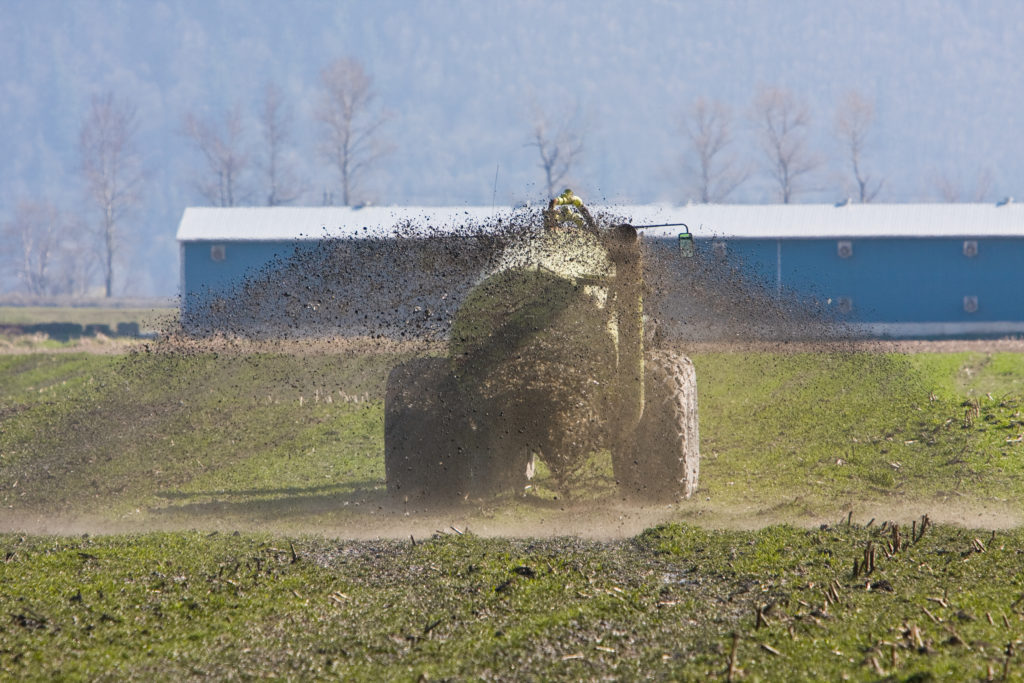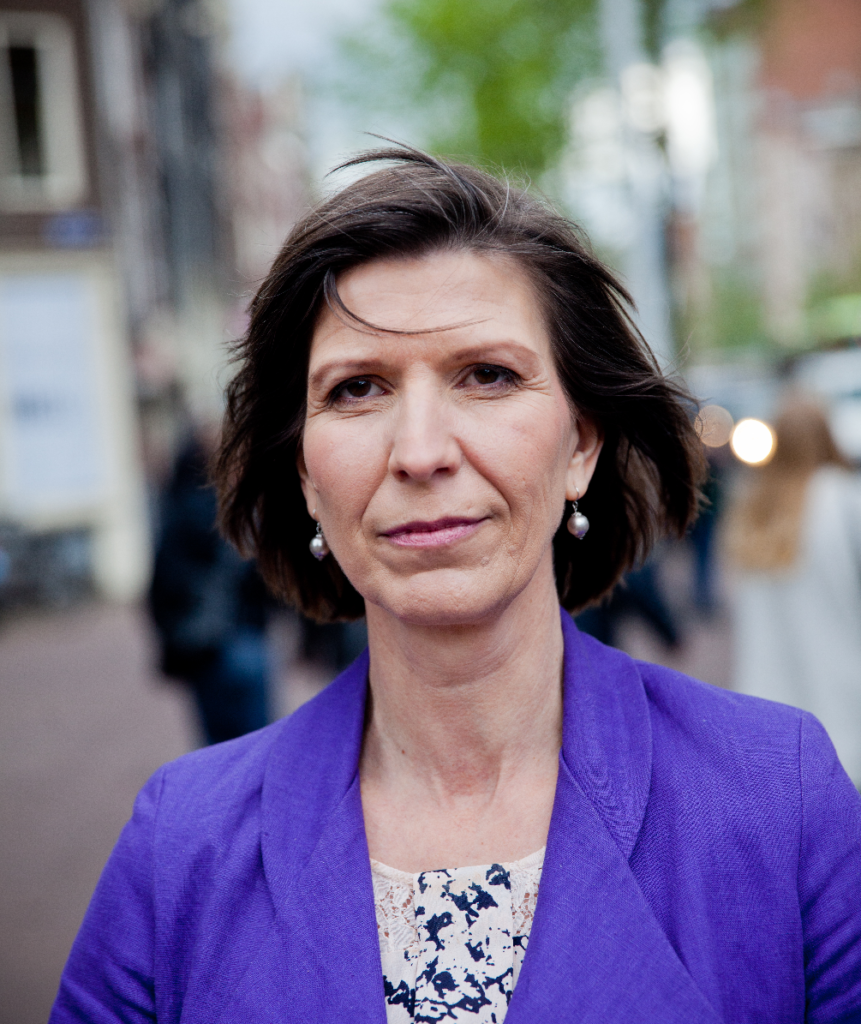الإعانات الزراعية الأوروبية تشكل تهديدا للتنوع البيولوجي
تسبب الممارسات الزراعية الغير المستدامة تلوث التربة، المياه، الهواء وفقدان التنوع البيولوجي. تحافظ السياسة الزراعية الأوروبية المشتركة (ج ل ب)على ذلك. هذا ما أظهرته نتيجة بحث أجرته مؤخرا مؤسسة فاغنينجن للبحوث البيئية (ألتيرا) بتكليف من الصندوق العالمي للطبيعة (و ن ف). تذهب أغلبية المليار يورو من التمويل السنوي المقدم من الصندوق ـ للسياسة الزراعية المشتركة الهولندية إلى المناطق التي يكون فيها الضغط على الطبيعة والتنوع البيولوجي من جانب الزراعة أكبر. لذلك يدعو الصندوق العالمي للطبيعة إلى إجراء إصلاح جذري في السياسة الزراعية المشتركة.

وقد وضعت السياسة الزراعية الأوروبية بعد الحرب العالمية الثانية لزيادة الإنتاج الزراعي لأغذية كافية وبأسعار معقولة. وقد أدى ذلك إلى تكثيف واسع النطاق وتوسيع نطاقه مع ما يترتب على ذلك من آثار سلبية كبيرة على نوعية المياه، التربة، الهواء والتنوع البيولوجي في أوروبا.
تنفق أوروبا 60 مليار دولار سنويا على الإعانات الزراعية. وفي كل عام يتلقى المزارعون الهولنديون حوالي 750 مليون يورو لدعم الدخل على أساس الحقوق التاريخية. وعلى الرغم من أن تلقي دعم الدخل يخضع لشروط في مجال الطبيعة، البيئة والمناظر الطبيعية، فإن هذه التدابير أظهرت أنها ليست فعالة. المحاولات السابقة من أجل إخضرار ج ل ب لم تسفر عن نتائج حقيقية.
تغيير جذري للأزمة
يكشف تقرير البحث لألتيرا الهولندية عن العلاقة بين عملية مدفوعات ج ل ب في هولندا والضغط على التنوع البيولوجي. تتميز مدفوعات ج ل ب بكونها مرتفعة بشكل خاص في المناطق التي توجد فيها شركات تعمل بشكل مكثف ولها تأثير سلبي على البيئة والتنوع البيولوجي. وبالإضافة إلى ذلك، هناك عدد قليل جدا من الحوافز ضمن ج ل ب الحالية لحماية الطبيعة والتنوع البيولوجي بشكل فعال. وھذا یشدد علی الحاجة إلی تکییف ج ل ب بشکل جذري وبالتالي وقف فقدان التنوع البیولوجي في ھولندا وباقي أوروبا. كما أن إصلاح ج ل ب يخدم مصلحة الزراعة ذاتها، لأن الزراعة في المستقبل تعتمد على الخدمات التي تقدمها الطبيعة مثل التربة السليمة والمياه النظيفة الكافية والحشرات الملقحة.
حزب من اجل الحيوانات يلتزم بالتغيير على المستوى الوطني والأوروبي
يدافع حزب من أجل الحيوانات منذ سنوات في هولندا وفي البرلمان الأوروبي من أجل مزيد من التنوع في الزراعة، دورات مغلقة، وسلاسل أقصر بين المزارعين والمستهلكين. هذه هي اللبنات الأساسية للأغذية الصحية والمستدامة. يجب أن تصبح الزراعة العضوية والإقليمية القائمة على الأرض هي القاعدة.
يريد حزب من أجل الحيوانات استخدام الميزانية الزراعية المشتركة للاتحاد الأوروبى لمساعدة المزارعين على التحول إلى الزراعة العضوية. ويجب إلغاء الإعانات الزراعية في المستقبل. وبالإضافة إلى ذلك، يجب على الحكومة أن تدعم بنشاط تعزيز المنتجات النباتية العضوية، بحيث يمكن للمزارعين كسب معيشة جيدة دون دعم.

الب برلمانية الاوروبية لحزمن أجل الحيوانات أنجا هازكامب
انتقدت البرلمانية الاوروبية لحزب من أجل الحيوانات أنجا هازكامب بشدة السياسة الزراعية الأوروبية في الاجتماع الأخير للجنة الأوروبية للزراعة والتنمية الريفية (أ ج غ إِ): “تعاني مليارات الحيوانات وتموت في صناعة الماشية، التنوع البيولوجي والبيئة تعاني من استخدام واسع النطاق لسموم، تحمض وتسميد وٱنخفاظ الشركات العائلية الزراعية، السياسة الزراعية الاوروبية تحتاج الى تغيير جذرى.”
(Wereld Natuur Fonds نص تم نقله جزئيا من ويريلد ناتور فوندز )
Unsustainable agricultural practices are the cause of pollution of soil, water and air and biodiversity loss, which is sustained by the EU Common Agricultural Policy (CAP). This was revealed in a recent study by Wageningen Environmental Research (Alterra), commissioned by the World Wide Fund for Nature (WWF). The bulk of the CAP funds of 1 billion euros each year is used mostly in those areas where pressure on nature and biodiversity as a result of agriculture is highest. WWF has therefore called for a radical reform of the CAP.

The European agricultural policy was developed after the Second World War in order to increase agricultural production for a sufficient and affordable food supply. This has resulted in extensive intensification and economies of scale with a major negative impact on the quality of Europe’s water, soil, air and biodiversity.
The EU spends 60 billion on agricultural subsidies each year. Dutch farmers receive a total of 750 billion euros in income support each year on the basis of historical rights. It is true that conditions with regard to nature, landscape and the environment are attached to receiving income support, but these have proven not to be effective. Earlier attempts to make the CAP more sustainable have largely been ineffective.
Radical change needed
The research report of Dutch institution Alterra highlights the relationship between payments from the CAP in the Netherlands on the one hand and the pressure on biodiversity on the other. CAP payments are especially high in regions with intensive farms that have a negative impact on the environment and biodiversity. In addition, the current CAP contains too few incentives to effectively protect nature and biodiversity. This underlines the necessity to radically change the CAP and halt biodiversity loss in the Netherlands and the rest of Europe. A reformed CAP is also in the interest of agriculture itself, as future-proof farming depends on services provided by nature such as healthy soils, sufficient clean water and pollinating insects.
Party for the Animals focuses on change at national and European level
In the Netherlands and in the European Parliament, the Party for the Animals has been arguing for years for more diversity in agriculture, closed loops and shorter chains between farmers and consumers. These are the building blocks for healthy and sustainable food. Organic, regional and land-based agriculture must become the norm.
The Party for the Animals wants the EU agricultural budget to be used to help farmers switch to organic farming. In time, the agricultural subsidies should be phased out. In addition, the government should actively support the promotion of organic plant products, to enable farmers to make a decent living without the help of subsidies.

Party for the Animals MEP Anja Hazekamp
Party for the Animals MEP Anja Hazekamp has strongly criticised the European agricultural policy at the last meeting of the European Commission’s Agriculture and Rural Development (AGRI): “Billions of animals are suffering and dying in the livestock industry, biodiversity and the environment are being damaged by the widespread use of toxins, acidification and eutrophication, and family farms have collapsed as a result of the economies of scale. The European agricultural policy is in need of a radical change of direction.”
(Part of this text was taken from the World Wide Fund for Nature)